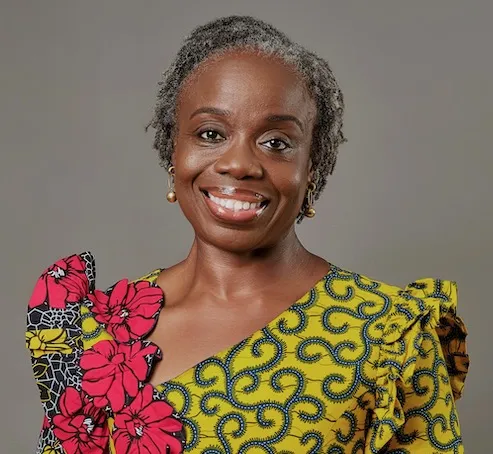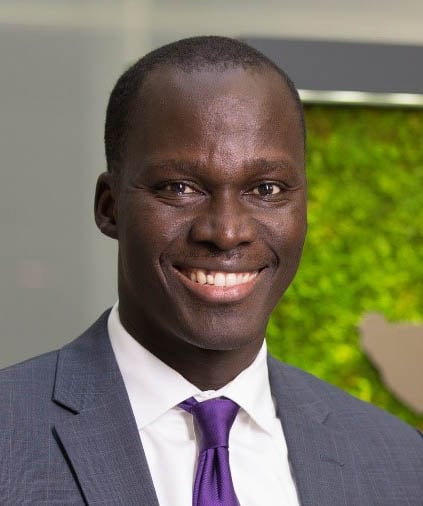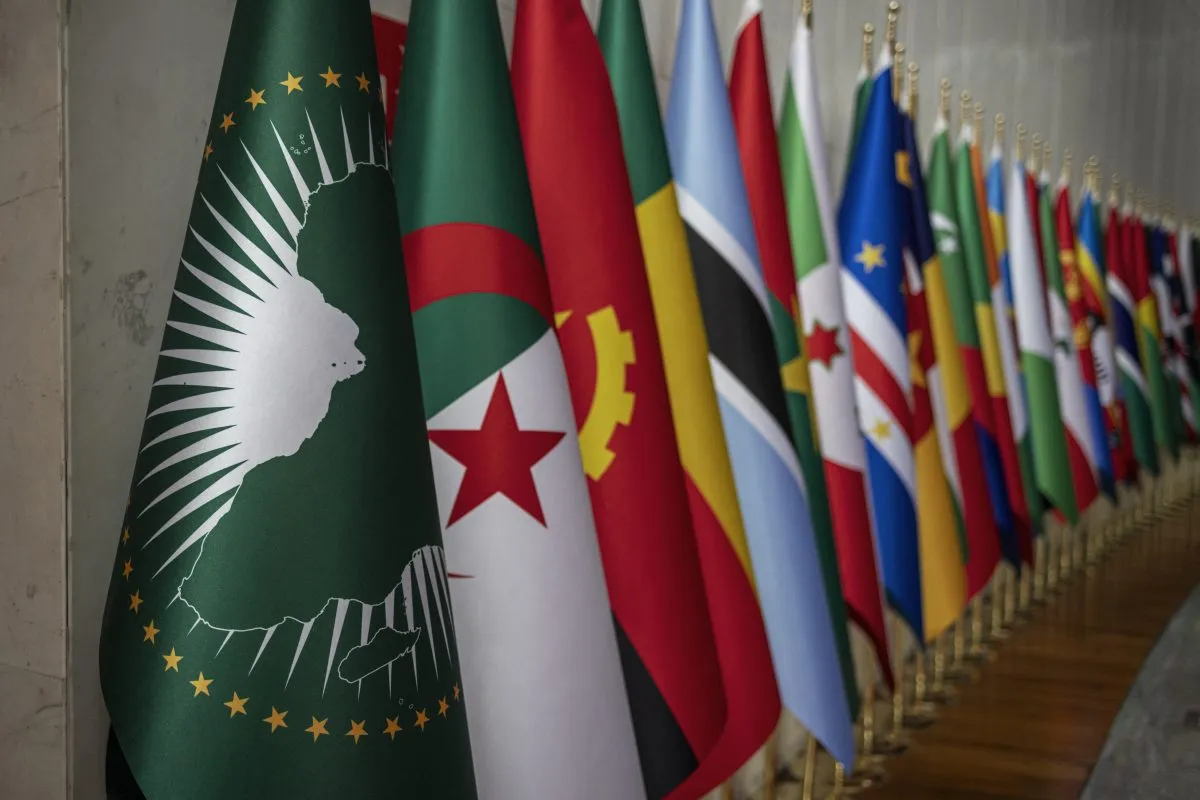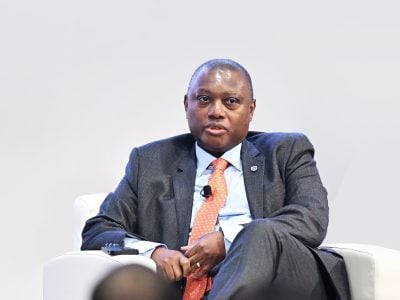This weekend, African Union member states will elect a new chair, deputy chair, and commissioners for the African Union Commission (AUC). This comes as Africa is navigating multiple issues that sit at the nexus of politics and economics, such as financial architecture reform, fragility and conflict, climate and minerals, regional integration, and jobs.
The world is experiencing a seismic shift in international cooperation, with traditionally powerful countries leaving a vacuum of leadership when it comes to aid and development, and this means that Africa must rely more heavily on our own continental and domestic resources to finance and execute our transformation. These issues can become either challenges or opportunities for our continent, depending on the leadership we choose.
Consider the fact that Africa needs nearly 73 million new jobs by 2050 to meet the needs of young people entering the labor force during this time, and we are not nearly on track to meet this goal. Or that most of the world’s energy transition minerals are in Africa but foreign companies and countries have reaped the profits while African people have missed out on the benefits of their own natural wealth. At the same time, we operate in a global financial system that does not work for Africa, underpinned by geopolitical tensions, mounting and costlier debt, and an unwillingness from traditionally powerful countries to share power with emerging markets. All while at home our continental financial system fails to fill the gaps left by the global system, and our politics lead to wasted money, unfulfilled promises, dissatisfied citizens, and eventually conflict and instability.
As we enter the second quarter of the 21st century, our regional institutions need to be fit for purpose. To get there, we need leaders at the helm of the African Union Commission that can position us to move Africa’s agenda forward. Against this backdrop, we highlight four key skill sets that African heads of state should be considering as they cast their votes for African Union Commission chairperson, deputy chairperson, and commissioners.
The first necessary skill is political leadership to manage conflict and instability. The AUC chair and deputy chair will need to work swiftly and closely with AU member states to deal with, reduce, and mitigate national, intra-country, and cross-border conflicts that continue to plague our continent. From recently renewed conflict in DRC to longstanding unrest and fragility in Sudan, South Sudan, and Somalia – we need leadership that can cut through historical barriers and help forge a path forward. With a growing number of young people protesting for a better future, we also need AUC leadership that can work with national governments to ensure their voices and lives are protected from retribution and violence.
Second, leadership must have economic savvy and an ability to work across borders for Africa’s transformation. Leaders at every level of the AUC have to deliver on the promise of Agenda 2063, working to build and sustain coalitions across countries that have their own domestic priorities but will benefit from working collectively on solutions. Over the next several years, the AUC can for example help turbo-charge African Continental Free Trade Area (AfCFTA) implementation, working more closely with the private sector and supporting value chains that cut across borders, create jobs, and result in truly African, value-added products for export. The AUC leadership can help build the necessary coalitions and agreements between countries and with global partners to ensure that our mineral wealth enriches rather than impoverishes our people. And they can push for reforms to the continental financial architecture that are long overdue and increasingly necessary as the world’s financial and geopolitical system shifts away from supporting Africa.
Third, successful candidates should have a proven record of navigating globally to benefit Africa. It is past time for the AU to take its place in the global system and craft a realistic narrative with confidence, not apology. We have the largest trading bloc, a young and motivated population, enviable arts and culture, natural resources and investment opportunities galore. Our continent is an incredible destination for investment and partnership, and we need to position ourselves accordingly. At the same time, many African countries are struggling with debt; we need AU leadership to make strong contributions to global decisions on overhauling the existing sovereign debt restructuring framework and reducing the high cost of capital. The Commission’s leadership must work seamlessly with AU member states to develop, finance, and deliver a strong agenda in the G20, in International Financial Institutions, and within a financial and political system that has for too long put Africa at the bottom of a long list of priorities and partners. No decisions that impact Africans should be made without Africa.
And finally: the AUC’s leaders must have the skills to build an institution that is efficient and authentically African for the 21st century. A successful African Union Commission must run more efficiently, effectively, and flexibly than our current model. And it must support African Union leadership while remaining steadfast in its commitment to Africa’s agenda on the global, regional, and local stages, regardless of which country holds the Presidency each year. The AUC’s top leaders must be able to convince African countries to put money behind their rhetoric: funding our own peace and security, building capacity for the AU’s G20 engagement, and investing in an African Union that can deliver more for Africa’s people without undue outside influence.
We are at a critical juncture in Africa’s development trajectory. We need an African Union that can play the role that our forefathers and foremothers envisioned, fast-tracking Africa’s progress rather than continuing down a road of slow transformation, fragility, and missed opportunities. That will require African Union Commission leadership, from the chairperson to the deputy chair to the commissioners of every department, that can contribute to and drive Africa’s agenda for the future.
As countries look to cast their votes, we hope they will keep these skills in mind and ensure that the AUC’s top jobs are filled by people with vision, political courage, and economic and policy boldness that serves Africa in this moment.
African institutions and civil society partners stand ready to support and advise the new AUC leadership while working with AU member states and partners to hold them to account for progress. Let’s make the African Union truly work for Africa.
Want to continue reading? Subscribe today.
You've read all your free articles for this month! Subscribe now to enjoy full access to our content.
Digital Monthly
£8.00 / month
Receive full unlimited access to our articles, opinions, podcasts and more.
Digital Yearly
£70.00 / year
Our best value offer - save £26 and gain access to all of our digital content for an entire year!



 Sign in with Google
Sign in with Google 



